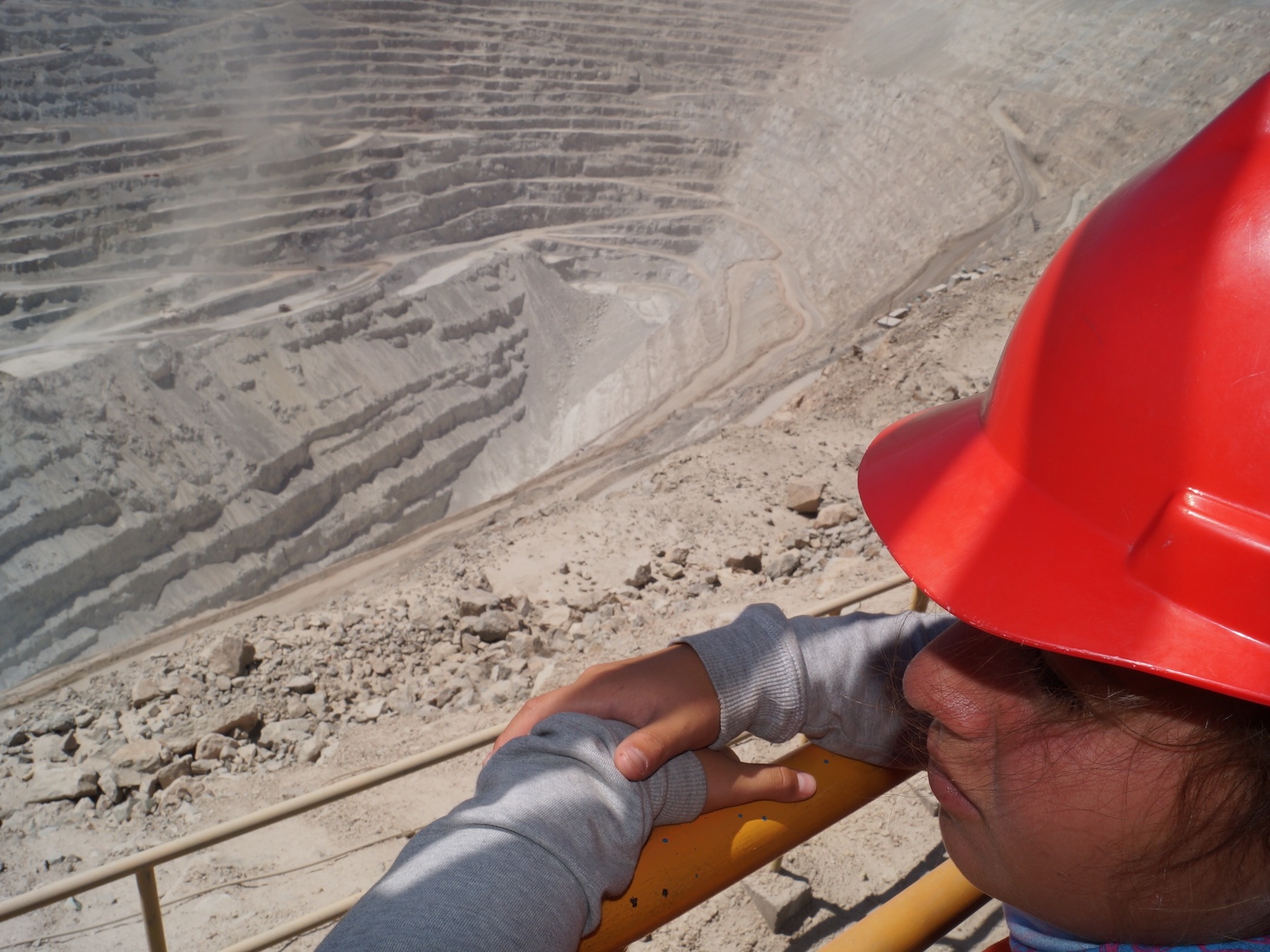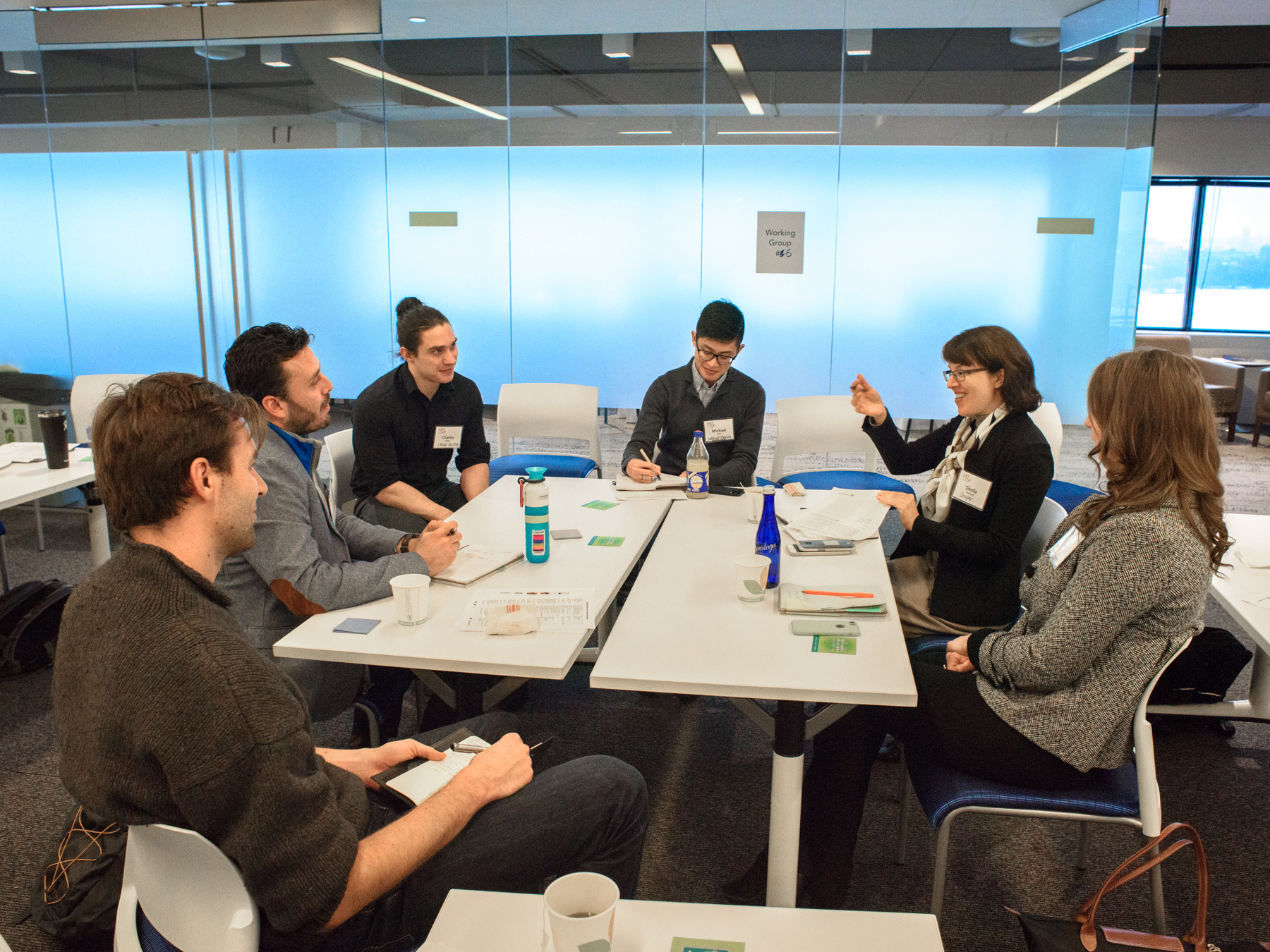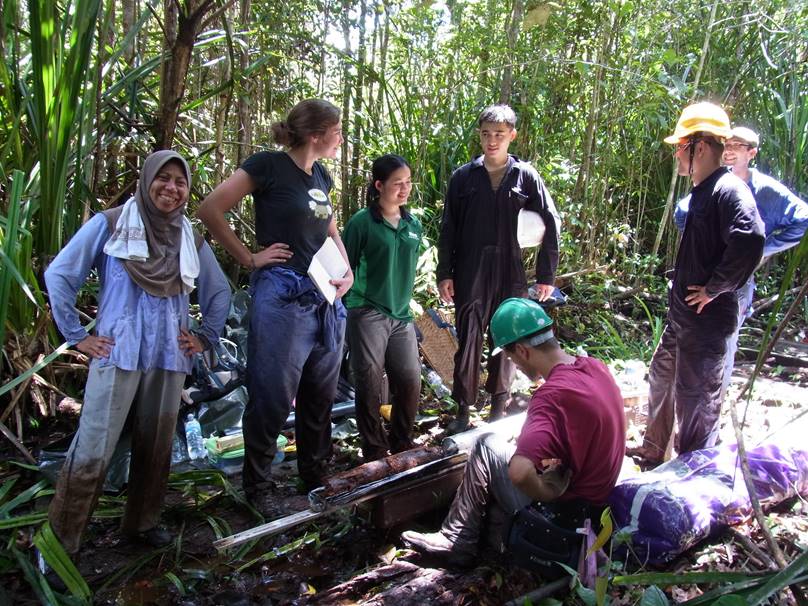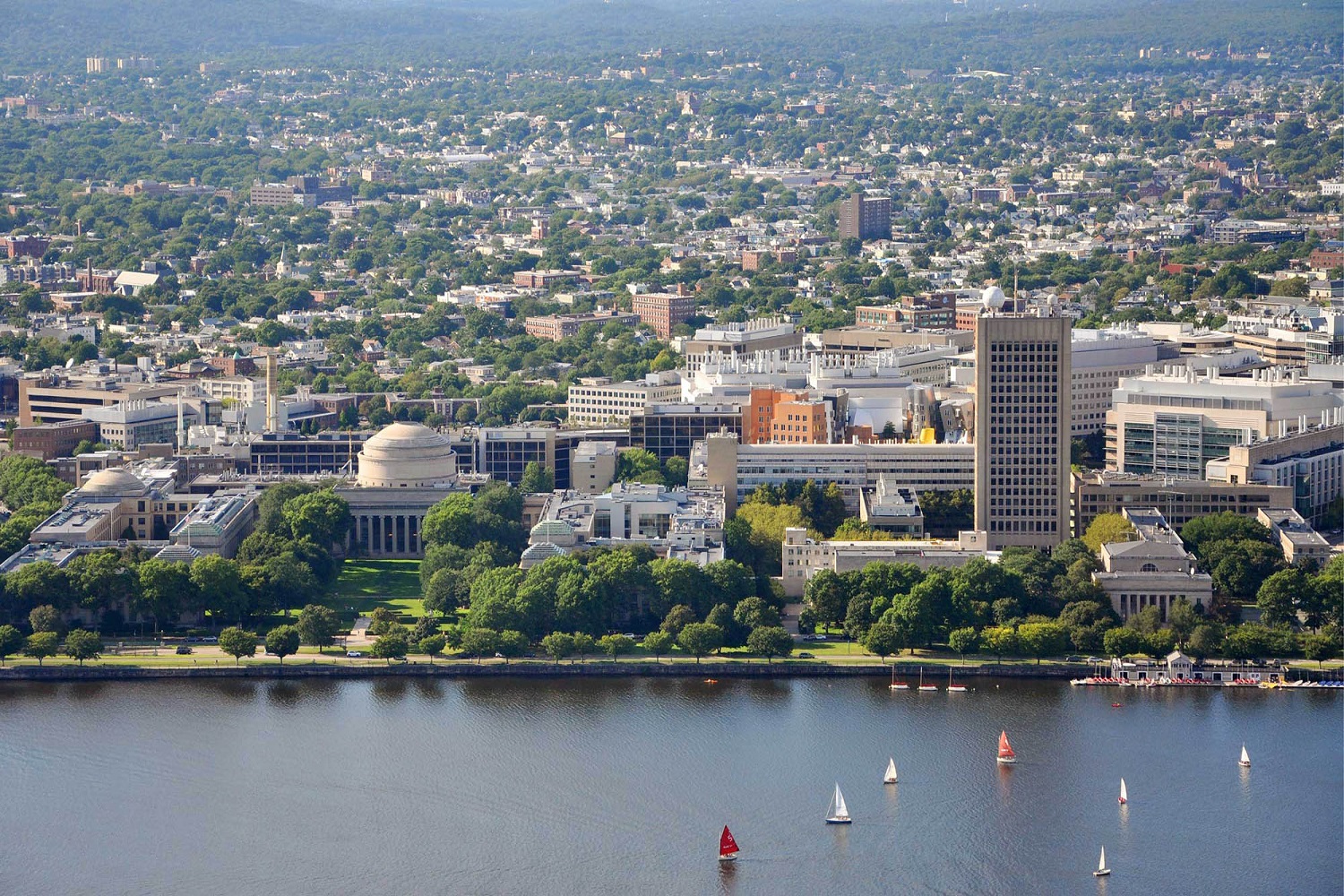Menu
Call for ESI Journalism Fellowship Applications
MIT Environmental Solutions Journalism Fellowships
Call for Applications Spring 2025
The MIT Environmental Solutions Journalism Fellowship supports freelance and staff journalists associated with U.S. local/regional newsrooms in developing a high-impact news project that reports on how climate change and/or the shift to a low-carbon economy relates to local communities and regions, in a way that centers local messengers, values, and priorities.
Studies show that localizing climate change impacts and actions is an effective way to engage audiences in climate solutions. Yet today, climate journalism is primarily limited to national news outlets. This fellowship helps provide Americans—especially those living in areas where climate change is controversial or underreported—with well-researched reporting on what a shift to a low-carbon economy can mean for them, their communities, and their local economies.
*New for spring 2025*
For this cohort of fellows, special consideration will be given to news projects centered on climate solutions within the food and waste systems, including food waste and methane emissions in waste management.
Starting in January 2025, Fellows will participate in a four-month nonresident program that includes:
- A multi-day virtual workshop* where Fellows will connect with MIT climate scientists, earth modeling researchers, political scientists, energy economists, and others;
- Access to an editor to support project structure and packaging;
- Training on using MIT’s extensive library databases, socioeconomic climate analyses, and other resources as requested;
- Twice a month virtual cohort meetings (attendance is expected);
- Republication of the project through MIT and partner channels; and
- Stipends of $10,000 plus up to $5,000 for qualified expenses (ex., travel, multimedia development, hosting an event).
*Workshops will be approx. 20 hours of virtual sessions over five days.
The fellowship supports projects that:
- Relate climate change, the shift to a low-carbon economy, and/or climate solutions within food and waste systems to their audience’s existing priorities and values;
- Focus on the newsroom’s home county(ies) or state;
- Feature lived experience and local perspectives and voices;
- Clearly indicate the applicant deeply understands their audience and local concerns;
- Are investigative or explanatory;
- Produce a longform feature or a series of a minimum of 4 shorter pieces;
- Will open local conversations about climate change solutions and empower their audience in engaging with this issue; and
- Have received a commitment from a local/regional news outlet to publish the feature.
Previous fellowship projects of MIT Environmental Solutions Journalism Fellows: 2021 and 2023 cohorts & 2024 cohort.
Awards won by MIT Environmental Solutions Journalism Fellows for their fellowship projects: Eric and Wendy Schmidt Award for Excellence in Science Communication from the National Academies; Best of Gannett 2021 journalism award; First place social issues story in the Minnesota Newspaper Association’s 2022 Better Newspaper Contest.
Who Can Apply
We welcome applications from staff writers of U.S. newsrooms, or freelance journalists in association with a sponsoring newsroom, who want to tackle an ambitious project.
Newsrooms can include newspapers, news magazines, broadcast stations, digital news outlets, and investigative journalism organizations. Writers employed by or writing for think tanks, lobbying groups, or advocacy groups are not eligible.
We look for applicants with proven journalism experience, proven ability to report and execute a complex project in their proposed medium, and a strong background or reporting experience in the subject.
We are committed to working with rural, hydrocarbon-producing and marginalized communities across the United States and we will ask judges to keep this in mind when selecting Fellowship placements.
Schedule
October 14, 2024: Application deadline
November: Announce Fellows
January 6, 2025: Fellowship and week-long virtual workshops begin
April 30: End of Fellowship Program
May 30: End date for project publication
Term of the Fellowship
The Fellowship is designed to enable Fellows to work on the project over a four-month period while still maintaining their regular employment and/or other contracts. Fellows will receive 50% of the stipend in advance and 50% upon publication of their project, though applicants should specify if this will present a hardship.
Fellows will also be awarded up to $5,000 for project-related expenses and will have significant discretion with how to use these funds. Acceptable expenditures include relief from daily newsroom duties, project-related travel expenses, multimedia development, transcription or relevant translation services, attending conferences or workshops to build subject-specific knowledge, or contracting with an outside journalism resource such as a data journalist or sensitivity reader. Funds may not be used to pay family members for any of these services. Itemized receipts must be kept, submitted to, and approved by the MIT Environmental Solutions Initiative.
How to apply
Qualified applicants are invited to submit their application by October 14, 2024, 11:59 PM ET using this submission form: https://climate-mit-edu.ezproxy.canberra.edu.au/journalism-apply.
The application includes the following:
- Resume/CV;
- One page cover letter introducing yourself, your proposed project and qualifications to execute it, and why you are seeking fellowship support;
- A letter of recommendation and commitment from a news editor who pledges that the news outlet will publish your feature/series (see below);
- Up to three samples of your best and most relevant work, published during the past 24 months; and
- A two- to three-page project proposal outlining your project. Please include:
- Your plan for incorporating the required project features listed above;
- A description of the makeup and size of your audience;
- How the project will engage Americans in parts of the country where climate change is disputed, controversial or underreported, in a way that is new or novel;
- What kinds of expertise, information/data, and multimedia content you would like to have access to/include;
- Disclosure of any potential conflicts of interest you may have;
- A proposed budget for the $5k expenditure; and
- Encouraged but optional: what an audience engagement component would look like.
Letter of Recommendation and Commitment
Because we believe that local stories should be told by local newsrooms, and because ESI does not have the capacity to help journalists place stories, we require Fellowship applicants to include a letter of commitment from a news editor who can pledge that the news outlet will publish the feature or series that you propose*.
Each employer or freelancer’s affiliated outlet will be asked to provide a letter of recommendation (on letterhead with contact information) pledging to support the Fellow:
- In participating in the Fellowship as outlined above (including, if applicable, providing adequate time for the fellow to travel for, report and write the project);
- In publishing the work before May 30, 2025, and in providing the editorial and technical support required to do so;
- By allowing MIT and the MIT Environmental Solutions Initiative to republish or otherwise make available the completed project, with appropriate credit given to the Fellow and original outlet;
- By including mention of the reporter’s Fellowship in the package or series.
*We recognize that this letter is not an unqualified pledge.
About
The MIT Environmental Solutions Journalism Fellowship is an effort of the MIT Climate Change Engagement Program at the Massachusetts Institute of Technology (MIT), which works to empower the public with trusted, nonpartisan, scientifically-grounded information on climate change and its solutions. See the program’s other public engagement work at https://climate-mit-edu.ezproxy.canberra.edu.au.
Frequently Asked Questions
Are students eligible for the fellowship?
Enrolled students are not eligible.
I am not a U.S. citizen/I’m a U.S. citizen living outside of the country. Can I apply?
In 2025, we are only accepting applicants who are U.S. citizens currently living in the U.S. and its territories.
I have a project idea about… Would it be a good fit for the fellowship? Can I discuss it with you?
In spring 2025, we’re looking to support projects that report on how climate change and/or the shift to a low-carbon economy relates to local communities and regions, in a way that centers local messengers, values, and priorities. For this cohort of fellows, special preference will be given to news projects centered on food waste, methane emissions in waste management, and climate solutions within the food and waste systems. If your project fits those criteria, and features local stories told by local/regional newsrooms, then it may be a good fit. We are unable to have calls with applicants to discuss their projects, but you may email us with questions at esjf@mit.edu.
What is the commitment for the workshop?
We’re planning for the virtual workshop to be several consecutive part-time days (ex, 5 days, 3-6 hours each day) the week of January 6, 2025, and the dates and times will be confirmed in the award letter to Fellows.
Does the stipend go directly to the individual Fellow, or can it go to the newsroom to be used toward their salary?
The MIT Environmental Solutions Journalism Fellowship isn’t a grant. Applicants should plan for the stipend to be awarded directly to the individual selected to participate in the Fellowship. This could be used, for example, to sustain the Fellow financially as they pursue the project during unpaid time off from the responsibilities of their daily employment. We cannot award any funding to newsrooms, except for contract services as pre-approved by MIT.
Can a team apply for the fellowship / can I apply in collaboration with another journalist and/or newsroom?
Yes, with some caveats. In 2025, the program can only accept one fellow per project administratively. That is, one fellow per project will be awarded the fellowship, receive the stipend, and be responsible to MIT for meeting the fellowship requirements outlined above. The fellow must also at a minimum co-author all stories produced by the fellowship. However, the project can be executed as a team effort; for example, the fellow may hire a data journalist from the same newsroom using the discretionary funds or may work with another journalist at another newsroom to co-publish stories between two newsrooms. The application should clearly articulate the name and role of each team member and why the team approach is optimal for meeting the fellowship project goals. Applicants can look to the 2023 fellowship project executed by Micah Drew from the Flathead Beacon as a model: Micah was awarded the fellowship and was the lead journalist for his fellowship pieces, but two other team members collaborated with him on the execution of the project.
















